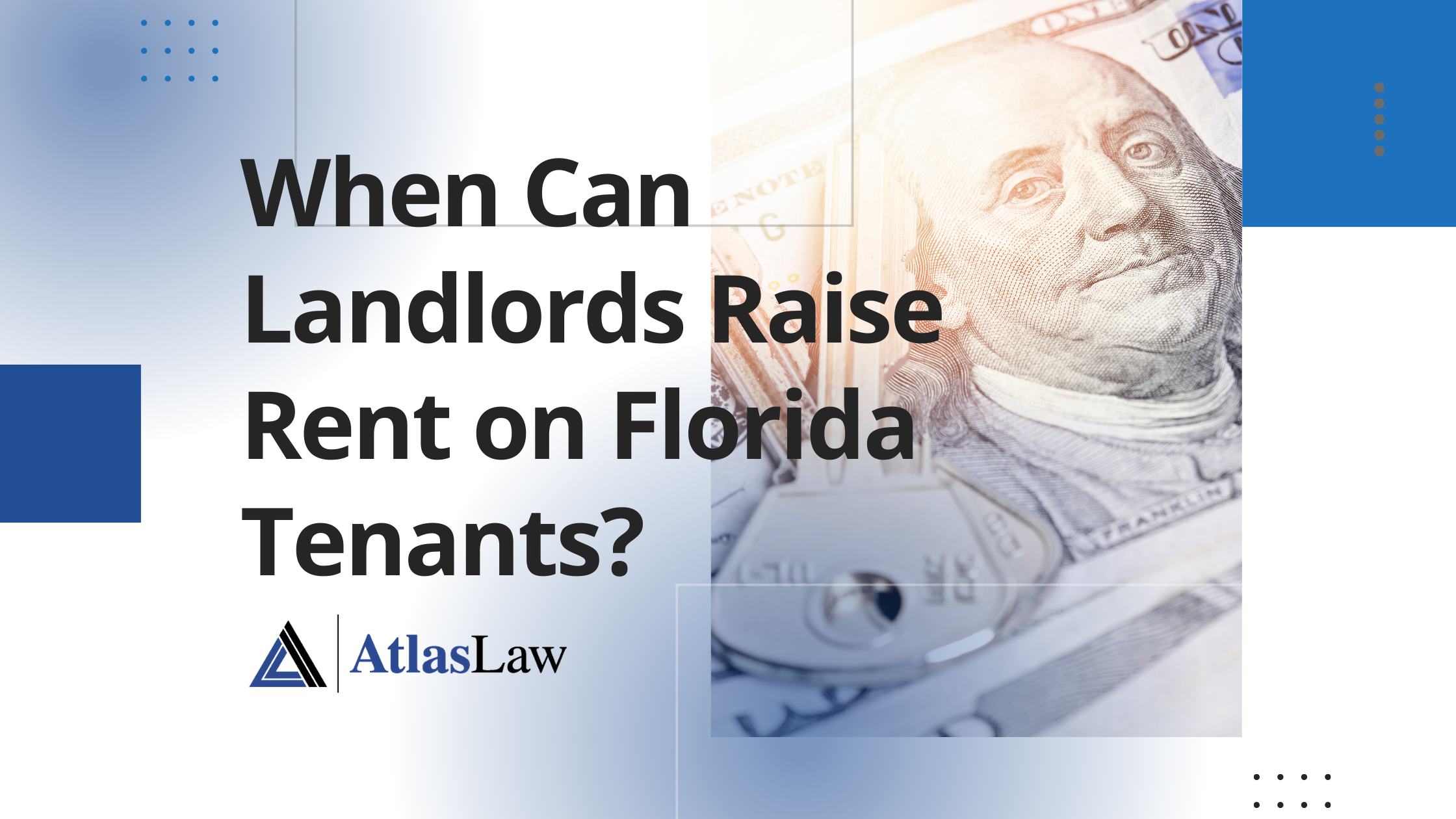
Real estate is thriving in Florida. People want to live in the Sunshine State. You know this, I know this, and your renters know this. So, it shouldn’t be a shock for tenants when rental prices go up on Florida properties.
As a landlord, you need to be able to cover the rising costs and make a living through those rental rates. However, understanding the legal framework for raising rent on tenants is crucial to maintaining a harmonious landlord-tenant relationship and avoiding legal issues.
Let’s explore the circumstances that allow you to raise rent on current tenants.
Lease Agreement Provisions
The foundation for any rent increase in Florida begins with the lease agreement itself. We encourage landlords to include clear and specific language regarding rent adjustments in the lease agreement.
A properly drafted rent increase clause in your lease provides an agreed-upon framework for raising the rate. Generally, it should be with reasonable notice and at a reasonable rate. As a reminder, even if your rental agreements state otherwise, new “Tenant Bill of Rights” measures that were attempted by Florida municipalities required at least 60 days’ notice to raise rent by more than 5%. While these “Tenant Bill of RIghts” measures were ultimately defeated by Florida legislation, they do provide a framework for “reasonable” notices and “reasonable” rate increases that tenants will likely point to in the future.
Lease agreements allow you to be more proactive and clear in your intention before raising rates.
Statutory Limitations
Florida law does not place restrictions on how much landlords can increase rent unless specified in the lease agreement. This allows landlords to make adjustments in line with market trends and inflation, ensuring that rental properties remain viable investments.
Property Improvements and Upgrades
Is a tenant asking you to make significant improvements to the property? These upgrades and additional maintenance will be costly, especially with inflation impacting the supply chain.
In this situation, the additional improvements likely extend beyond the terms of your lease agreement and provide you an opportunity, with notice, to make the improvements contingent upon a higher rental cost.
Obviously, if the upgrades or maintenance are required for the safety of your tenants then this is not an avenue to raise rent. However, if they are superficial or subjective changes then consider negotiating with your renter to find the right price.
Changes in Utility Costs
If utilities are included, it’s important to include language in the lease about who will be responsible for excessive utility increases. Your rental agreement should cover circumstances both where the renter is not being reasonable in the way they use utilities in the home and in circumstances where the utility companies significantly increase costs.
You have a right to pass some or all of the utility costs onto the renter with proper notice.
Work with a Florida Landlord’s Advocate
Raising rent on Florida tenants is a process that must be approached with care and adherence to the law. By understanding the specific circumstances in which rent increases are permitted, landlords can protect their investments while maintaining positive landlord-tenant relationships.
At Atlas Law, we are A Landlord’s Advocate” and remain dedicated to protecting the rights of Florida landlords to make a living on the investments they’ve made. Contact our team if you’re having an issue with a tenant after raising rent or are concerned about an upcoming rental increase notice.